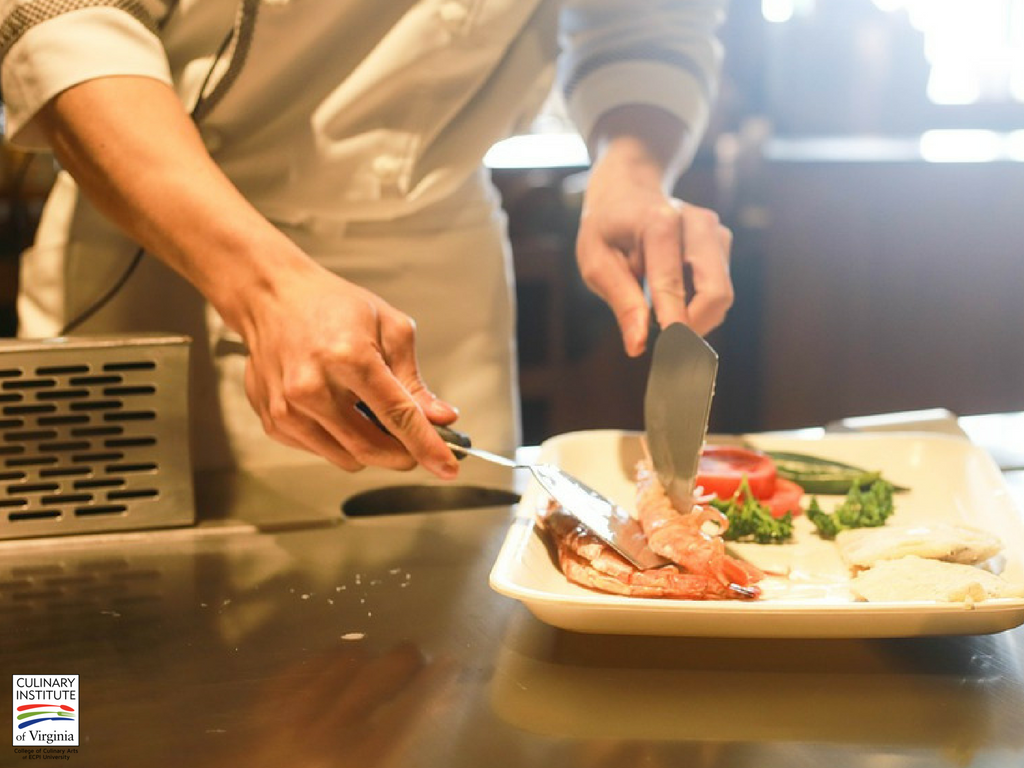
Are your dreams filled with stir fry and baked goods? Do you enjoy serving up nourishing meals to your friends and family? If you love cooking and are passionate about working with others to create outstanding meals, then pursuing work as a chef might just be the ideal career path for you.
But where to begin? There are a myriad of different paths to take towards becoming a chef. Some people start it out as a dishwasher and slowly work their way up the culinary track until they have the skills and experience to become a chef while others head to culinary school for a more intensive training that will prepare them from the onset for a demanding career in restaurants.
No matter which path you wind up choosing, to excel and become a successful restaurant chef requires certain education and technical expertise. The following is a quick look at the important subjects every chef needs to know. Whether you choose to learn them on your own or within the structure of culinary arts school is up to you.
4 Important Subjects to Know in Order to Become a Chef
- Math courses. In truth, cooking exists because of certain mathematical concepts and knowing how to cook well requires a solid understanding of numbers. Chefs need to know how different weights and mass impact cooking time, how to break down the cost of plates in order to accurately price them for a profit, how to make quick recipe conversions, and so much more. While you don't have to be a professor of mathematics to excel in the culinary world, you should continually try to challenge yourself. This is one of those areas where practice makes perfect and the more you use mathematical fundamentals, the easier and more efficient it gets. Math also plays a big role in understanding the next important subject for chefs.
- Business administration. The chef is the leader of the back of house, the boss of the kitchen. As such, while they may not be in charging of operating the entirety of the restaurant (although in quite a few cases they are) they are in charge of almost everything having to deal with the food itself. Taking business courses can help aspiring chefs understand how to make a labor and food budget, efficiently operate their kitchen, manage their employees, and market new menu items.
- Biology & Chemistry. Biology has significant implications in the culinary world and students with a strong understanding of its inherent concepts will be better able to grasp how and which food combinations are the most appealing to their patrons. Biology also plays a large role in the trending art of molecular gastronomy. Meanwhile, chemistry, which includes the study of how matter interacts, combines, and changes, holds its own esteemed place in the science of cooking. In culinary arts courses, students learn chemistry processes like spherification through which sodium is used to control when and how liquids congeal. Mastering this process allows chefs to more accurately craft the textures in their dishes. Then there's the cooking tradition of sous vide cooking, which is the process of cooking via vacuum pressure, that relies on chemistry concepts.
- Food plating aesthetics. Restaurant patrons experience food first with their eyes and nose and second with their tongue. This means that you could craft the most delicious dish in the world but if who you are serving thinks it looks and smells horrific, they'll never fully appreciate the meal. This is why having a basic understanding of art and food aesthetics is fundamental to becoming an outstanding chef. This art of food plating includes a number of techniques like how to effectively layer sauces, understanding the appropriate height and width of plate and food styling, and which splashes of color best enhance the food presentation. It doesn't matter if your first job is at the local fast food diner or the trendiest restaurant on first and main, knowing food aesthetics and how to properly present a dish is a key subject you will need to know.
Jumpstart Your Career Today
Are you ready to pursue a formal education in the culinary arts? If you want to earn an Associate of Applied Science Degree in Culinary Arts, ECPI University’s Culinary Institute of Virginia offers this program at an accelerated rate. For more information, connect with a knowledgeable admissions advisor today.
It could be the Best Decision You Ever Make!
DISCLAIMER – ECPI University makes no claim, warranty, or guarantee as to actual employability or earning potential to current, past or future students or graduates of any educational program we offer. The ECPI University website is published for informational purposes only. Every effort is made to ensure the accuracy of information contained on the ECPI.edu domain; however, no warranty of accuracy is made. No contractual rights, either expressed or implied, are created by its content.
Gainful Employment Information – Culinary Arts - Associate’s
For more information about ECPI University or any of our programs click here: http://www.ecpi.edu/ or http://ow.ly/Ca1ya.


